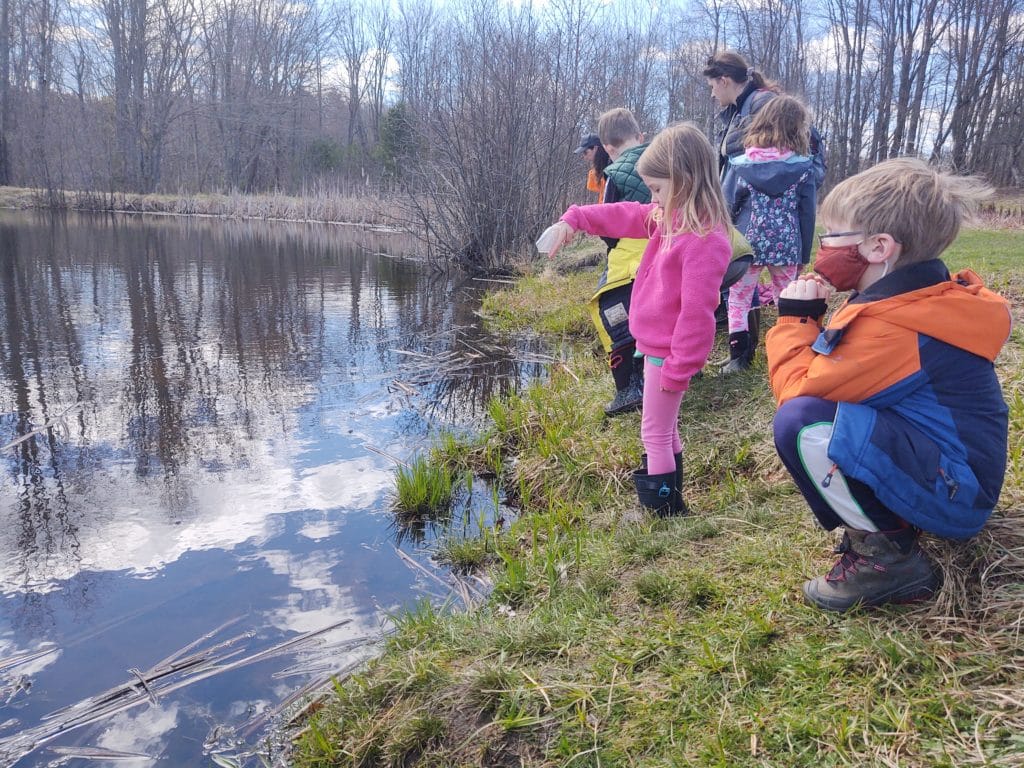
The 130th Maine Legislature has nearly completed the work of their second session, with many conservation wins to show for it. From expanding biodiversity protection on public lands, to limiting sprawl across the state, to reducing conflict between boats and wildlife, meaningful environmental policy development was a priority this session for Maine lawmakers.
We achieved successful outcomes for many of Maine Audubon’s priority bills (though some are still awaiting the Governor’s signature). Our advocacy staff worked hard on behalf of these bills—submitting testimony, working with lawmakers, talking to the press—but ultimately our success is due to the work of Maine Audubon’s Action Network. Thank you for each and every of the thousands of times you reached out to your legislators this session by phone, email, or in the halls of the State House, to let them know you cared about protecting the environment.
Key highlights:
Promoting Climate Education: Thanks to the tireless work of a strong coalition of local nature-based education organizations and youth activists, LD 1902 secured over $2 million for a pilot program to increase climate education in Maine public schools. The program will provide grants for professional development in K-12 interdisciplinary climate education and create partnerships between schools and community organizations to develop engaging climate curriculum. Passed!
Expanding Maine’s Ecological Reserve System. LD 736 improved this subset of Maine public lands by increasing the size limit of the system, while also helping to meet climate goals including nature-based carbon sequestration and storage, as well as enhancing biodiversity protection. Passed!
Protecting Water Quality. LD 1964 reclassified more than 800 miles of rivers and streams across Maine—a tool to maintain water quality—including several waters with important trout and salmon habitat, such as the South Branch of the Sandy River, Orbeton Stream, the Little Narraguagus River, and the West Branch of the Penobscot River above Ambajejus Lake. Passed!
Limiting Sprawl. LD 2003 supports concentrated development in strategic locations across Maine, which will reduce transportation emissions, improve public health, and help wildlife. Keeping development away from important habitat helps wildlife thrive by permitting movement across the landscape and giving species space to adapt to a changing climate. Passed!
Reducing Conflict Between Boats and Wildlife. Thanks to LD 1663, Maine will begin to phase in a mandatory boating safety and education course for inland water users. The course will include education on the importance of no-wake zones to wildlife and water quality; the imperative that boats be cleaned of invasive plant species before entering Maine waters; and how to avoid harassing or otherwise harming Maine wildlife. Passed!
Improving the Water Quality of Maine Lakes. LD 1826 expands the membership and purpose of the Interagency Task Force on Invasive Aquatic Plants and Nuisance Species, including the identification of possible legislation to address threats to Maine lakes. This is a big step toward limiting the spread of invasive plant species–a scourge to water quality. Passed!
While this session was dominated by success stories, there is still work to be done. We are truly disappointed that LD 1626, the bill to recognize the sovereignty of Maine’s Wabanaki tribes, has not been successfully resolved. We will continue to support sovereignty for Maine’s tribes. Likewise, Maine lawmakers did not fund bills that would help guide responsible solar development or reclassify the Lower Presumpscot River, both issues that we will continue to pursue.
As Maine Audubon’s advocacy work continues, we’ll keep you in the loop as vital partners in progressing strong environmental policy in Maine and beyond. Thank you for your support of Maine Audubon.
